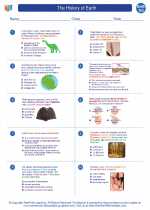Lymph
Lymph is a clear, colorless fluid that forms part of the interstitial fluid (fluid between cells) and is also found in lymphatic vessels. It is a crucial component of the immune system, as it contains white blood cells called lymphocytes that help fight off infections and diseases.
Composition of Lymph
Lymph is composed of water, proteins, fats, white blood cells (lymphocytes), and cellular waste products. It also contains electrolytes, hormones, and nutrients that are essential for the proper functioning of the body.
Functions of Lymph
- Immune Response: Lymph plays a vital role in the body's immune response by transporting lymphocytes and other immune cells to the lymph nodes, where they can encounter and respond to foreign invaders such as bacteria, viruses, and cancer cells.
- Fluid Balance: Lymph helps maintain fluid balance in the body by collecting excess interstitial fluid from tissues and returning it to the bloodstream. This process prevents the accumulation of excess fluid in the tissues, which can lead to edema (swelling).
- Nutrient Transport: Lymphatic vessels also absorb fats and fat-soluble vitamins from the digestive system and transport them to the bloodstream, ensuring proper nutrient distribution throughout the body.
Lymphatic System
The lymphatic system is a network of lymphatic vessels, lymph nodes, and organs (such as the spleen and thymus) that work together to produce, store, and transport lymph. It is an essential component of the circulatory and immune systems.
Study Guide
When studying the topic of lymph, it's important to focus on the following key points:
- Understanding the composition of lymph, including its cellular and non-cellular components.
- Explaining the functions of lymph, particularly its role in the immune response, fluid balance, and nutrient transport.
- Identifying the components and functions of the lymphatic system, including lymphatic vessels, lymph nodes, and associated organs.
- Exploring the interplay between the lymphatic system and other bodily systems, such as the circulatory and digestive systems.
- Discussing common disorders or diseases related to the lymphatic system, such as lymphedema or lymphoma.
By mastering these key points, students can develop a comprehensive understanding of the role and significance of lymph in the human body and its contribution to overall health and well-being.
.◂Earth Science Worksheets and Study Guides High School. The History of Earth

 Worksheet/Answer key
Worksheet/Answer key
 Worksheet/Answer key
Worksheet/Answer key
